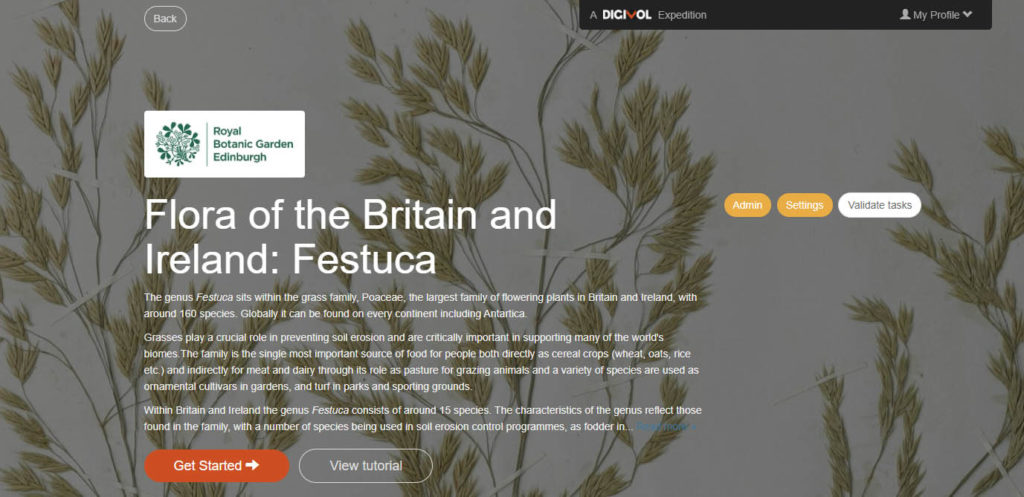The collections from Britain and Ireland held within the RBGE Herbarium are estimated to number over 500,000 specimens of cryptogams (algae, fungi, lichens and mosses), ferns, gymnosperms and flowering plants. We are in the process of digitising these collections, much of which has been carried out by volunteers who have taken part in our annual British DataBlitz, creating basic records for the specimens. We have then been able to use smaller funded projects to add images to these records.
Join us on a series of virtual expeditions which seek to make the specimen data ‘research ready’ for use by researchers around the globe.
On this first expedition you will focus on the genus Festuca which sits within the grass family, Gramineae. This the largest family of flowering plants in Britain and Ireland, with around 160 species and globally it can be found on every continent including Antartica.
Grasses play a crucial role in preventing soil erosion and are critically important in supporting many of the world’s biomes. The family is the single most important source of food for people both directly as cereal crops (wheat, oats, rice etc.) and indirectly for meat and dairy (pastures for domesticated livestock). A variety of species are used as ornamental cultivars in gardens, and as turf in parks and sporting grounds.
Within Britain and Ireland the genus Festuca consists of around 15 species. The characteristics of the genus reflect those found in the family, with a number of species being used in soil erosion control programmes, as fodder in agriculture and ornamental plants in gardens across the British isles.
The expeditions will be hosted on Digivol an online citizen science platform. Sign up and get exploring by following the link: https://volunteer.ala.org.au/project/index/142057091

